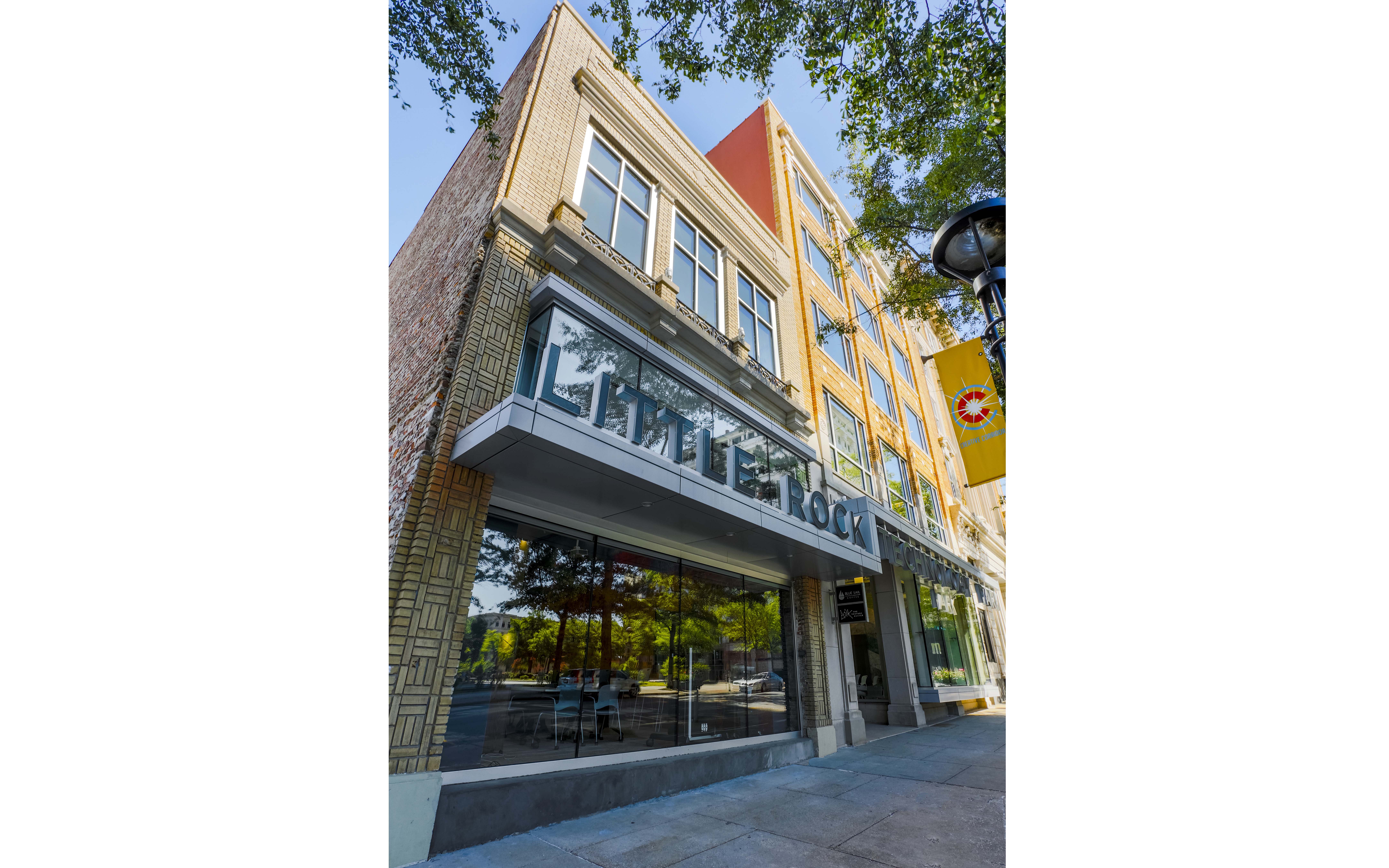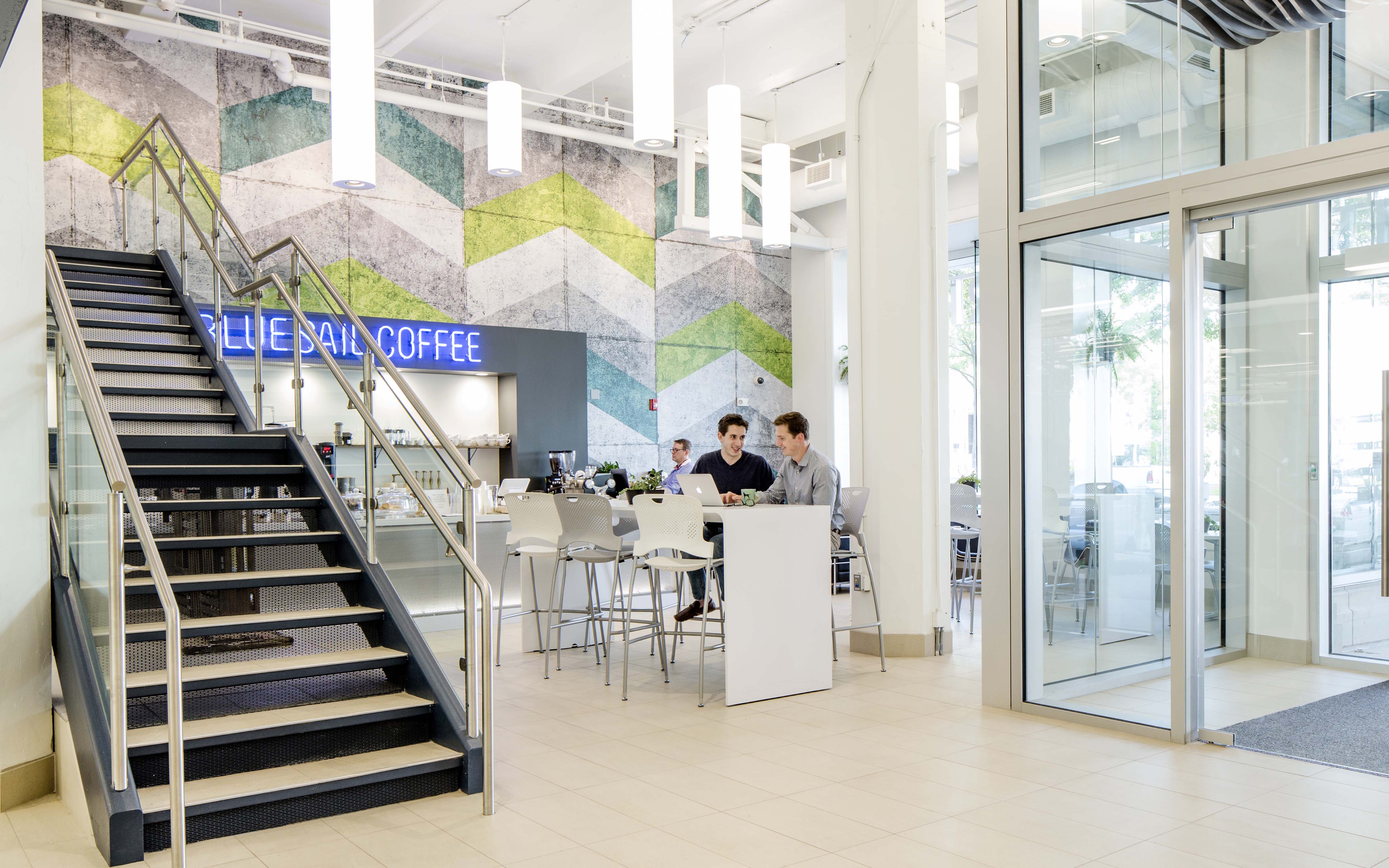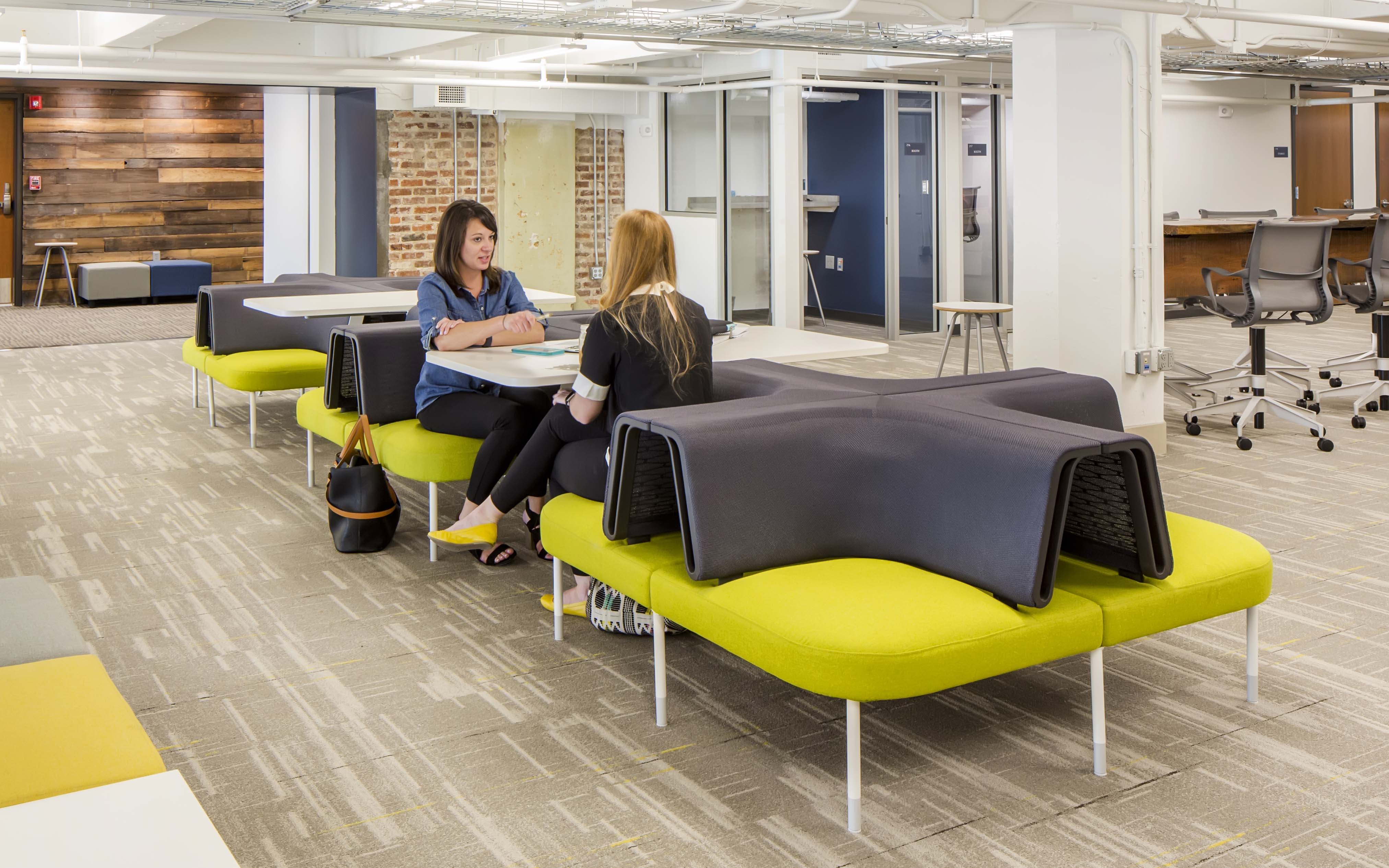Central Arkansas entrepreneurial ecosystem looks to reboot in the New Year
December 21-27, 2020
It goes without saying, 2020 has been a tough year for small business.
That’s why the focus of the $2.2 trillion Coronavirus Aid, Relief and Economic Security (CARES) Act in late March was the $650 billion Paycheck Protection Program, which provided emergency relief in the form of forgivable loans for struggling small businesses.
But for local startup firms and early-stage business owners that have recently created a new business enterprise, the nine months since the President Donald Trump declared the COVID-19 a national emergency has been especially tough to remain afloat.
At the center of Central Arkansas’ entrepreneurial ecosystem, Little Rock Technology Park Authority Executive Director Brent Birch said the ongoing pandemic has disrupted operations at the city’s multi-stage tech village. He said the Tech Park was poised to move forward in early 2020 with a second phase of development once decisions were made on how to fully finance the $26 million project. But those but those plans have been tabled until next year, he said.
“The pandemic has naturally caused some of our up-and-coming companies and entrepreneurs to reevaluate their expenses and some naturally elected to vacate the space,” said Birch. “On the flip side, we’ve also seen two companies blossom during the pandemic and move out for bigger and better space.
“Those are successes in our book, pandemic or not. The interesting dynamic has been several of our tenants hanging onto their offices while rarely coming into the building,” continued Birch. “They don’t want to lose their spot once things normalize which makes a lot of sense. The LR Tech Park does have about 15-20 tenants that come in pretty much on a daily basis and it’s been the same 15-20 the entire time.”
In 2011, the Tech Park’s first phase was accelerated after Little Rock taxpayers approved a $22.5 million sales tax referendum to finance the project. Four years later, a local banking consortium led by Conway-based Centennial Bank financed the successful completion of the six-floor, 38,000 sq. ft. project that now houses startup firms ranging in size from sole proprietors to mid-sized startups with growing payroll needs.
At near fully occupancy with more than 100 occupants in 2019, the Tech Park today is fronted by its only retail tenant, the heavily trafficked coffee bar operated by Blue Sail of Conway. The taxpayer-financed project also includes office suites, meeting and event space, indoor bike racks, 24/7 access and onsite parking, and a corporate-level conference room named after former authority chair Mary Goode.
Under Phase II plans first unveiled by Little Rock-based WER Architects two years ago, the Tech Park board outlined plans for an 83,000 square foot STEM-focused downtown project will serve as the “front door” of the downtown startup incubator. The original bid proposal calls for commercial space on the first floor for a restaurant or cafeteria, and a large meeting/conference room that could serve up to 150 people.
The original Tech Park master plan for the second phase focuses on space for research and wet/dry labs, a key feature of the authority’s request for bids. Those preliminary plans also called for six stages of development over several years that would foster a Silicon Valley-like entrepreneurial culture in Little Rock’s central city.
Birch said once the pandemic abates as COVID-19 vaccines become more available in early 2021, the five-person Tech Park board of directors led by Mainstream Technologies Chairman John Burgess “will have a strategic meeting in the early spring to make some decisions on where we head next” concerning Phase II development.
The largest tenant at the downtown tech village is Little Rock Venture Center, which is housed on the sixth floor of the Tech Park at the center of the city’s Creative Corridor. Venture Center Executive Director Wayne Miller told The Daily Record that the entrepreneurial service organization has also had to its services for its clients, partners and the local startup community.
Miller noted aspects of the pandemic in the startup community that are difficult to talk about, such as mental health, laying off workers and halting business operations. He said the Venture Center had to immediately suspended its two nationally recognized fintech accelerator programs that brings togethers bankers and financial technology companies from across the globe to Little Rock to develop new technologies specifically for the community banking sector.
“In terms of what we’ve done from a COVID-19 perspective, literally on March 15 we shut in down,” said Miller, whose nonprofit oversees the ICBA ThinkTech Accelerator and FIS Accelerator programs. “We shifted immediately to a virtual structure and I’m not sure we knew what we were doing but we did it – and I thought we did it very well.”
Under Miller’s direction, the nonprofit Venture Center launched the first-of-its-kind ICBA ThinkTech Accelerator in late October 2019 when the local entrepreneurial service organization (ESO) partnered with Washington, D.C.-based Independent Community Bankers of America (ICBA), which represents approximately 5,000 small and mid-sized banks and financial institutions from across the U.S.
That program provides 10 cohorts selected from a pool of global applications with an initial investment of $75,000 to participate in a 12-week residence and mentoring bootcamp with corporate and banking executives. It was modeled after the Venture Center’s extraordinarily successful FIS FinTech Accelerator sponsored by the world’s largest financial technology services company, Jacksonville, Fla.-based Fidelity National Information Services (FIS). That program was launched in 2016 and has attracted thousands of applicants each year from as far away as Africa, Switzerland and India.
Miller said the Venture Center had to pivot in the way that it recruits and mentors the startup firms that participate in the two accelerators programs. Instead of those companies traveling to and living in Little Rock several months and working out of the Tech Park, Miller said his team now works remotely and communicates with those cohorts over the widely accepted Zoom virtual platform.
“We had always been highly committed to Zoom because when we do our recruiting on a global basis, that has been the platform to do that for our accelerator programs, so we were pretty comfortable with the tool,” he said. “But using it for functions is a different issue, but I will tell you what it has enable us to do is increase our reach, the level of participation, and increased the exposure to Arkansas virtually.”
Miller said the local ESO also has partnered with ICBA and other like-minded financial groups to host a second virtual event for community banks to help solve for the myriad of programs following the chaotic roll-out of the PPP program in early April. Miller said those PPP loan events were so popular that they drew hundreds of interested participants together to get much need forgivable loans to Arkansas-based startups and entrepreneurs.
As of today, Congress is again holding pre-Christmas talks on a second emergency relief package that could offer new PPP loans for small business owners that have been hit by a second wave of fast-spreading virus as vaccines began arriving in all 50 states ahead of Christmas.
“I think the tools are now in place to effectively support that (PPP) distribution,” Miller said of the U.S. Small Business Administration-run program. “I think where it is going to get better, because there was an issue as it was rife with fraud and people buying Lamborghinis and Michael Kors purses.”
Miller and Benito Lubazibwa, CEO of Remix Ideas Inc., also agreed there needs to be more done in Arkansas to aid businesses of color that did not get access to PPP loans. Those same business now face more barriers to remain in business during the pandemic, both said.
Like the Venture Center, Lubazibwa said Remix Ideas has also pivoted to virtual operations, offering a wide range of programs and tools to black and minority owned businesses that did not have banking relationships to participate in the PPP funding program. Lubazibwa, who is also the founder the Little Rock’s Africa Day Festival, ShopBlackLive virtual platform, and the Little Rock Night Market, has provided two rounds of micro-loans for black-owned startups during the pandemic through a partnership with local business owners and supporters.
In October, ReMix hosted a virtual summit at the Tech Park that brought together over 100 black-owned businesses, entrepreneurs, policymakers and local and state government officials to support black businesses that have been negatively impacted COVID-19. During the two-hour Zoom call, which included a “call to action” by Little Rock Mayor Frank Scott Jr., Southern Bancorp CEO Darrin Williams announced the state’s first $5 million venture fund to support early-stage black-and Hispanic-owned businesses.
At the same summit, ReMix and the Little Rock-based Urban League of Arkansas also announced the formation of the Advancing Black Entrepreneurship Fund to raise and award $1 million to Black-owned businesses by November 2021.
“2020 has been a challenging year for all of us. We are all experiencing unprecedented times. Black entrepreneurs are more vulnerable to the negative impacts of the COVID-19 crisis due to structural inequities,” said Lubazibwa, who mantra is “to build an ecosystem that empowers Black entrepreneurs to start, grow and scale their businesses.”
As the state’s lone ESO that is solely focuses on black startup and entrepreneurs, Lubazibwa said ReMix ‘has had to integrate additional actions into our framework in response to the COVID-19 pandemic – to push for equitable economic recovery during this crisis.” Going into 2021, the local entrepreneurial guru said he believes that more black entrepreneurs will take the leap to starting a new business as the pandemic expose inequities that have caused minorities to put their futures in their own hands.
“What inspires me about the work I do is the resilience, courage, and perseverance demonstrated by Black entrepreneurs as they build and operate their businesses despite unjust systems and economic conditions,” said Lubazibwa. “Despite these hurdles, Black business ownership is still on the rise – this inspires me greatly.”
PHOTO CAPTIONS: (Photos by Karen Segrave)
1. COVID-19 uncertainty and challenges have fundamentally disrupted the Central Arkansas entrepreneurial economy. The local tech community looks forward to the new year.
2. Little Rock Tech Park tenants plugin at Blue Sail coffee bar in the lobby of city’s downtown tech village.
3. Local entrepreneurs hold meetings and relax in co-working spaces and workstations on the second floor of the LR Tech Park.





